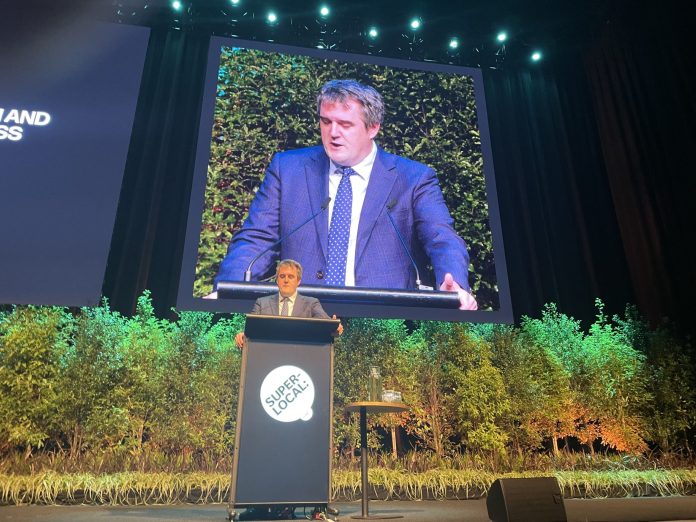
Councils have been blindsided by the government’s call to halt planning work, which they say will have ‘‘unintended consequences’’.
Resource Management Act (RMA) Reform Minister Chris Bishop has put a stop to councils working on District and Regional Plans until the new RMA legislation takes effect.
‘‘Rather than let these pricey, pointless planning and policy processes play out, we will be giving councils clarity on where to focus their efforts while they await the new planning system,’’ Bishop said at the Local Government NZ conference in Christchurch on Wednesday.
The shake-up of the RMA is expected to come into effect in 2027.
Ashburton Mayor Neil Brown said the message from Bishop was loud and clear.
“There is RMA reform and don’t waste money on doing plans into the future because they will be wasted.
“The government is making decisions soon and will give councils clear direction.”
Ashburton’s district plan is overdue for review and Brown said they have been holding off anticipating the RMA changes.
He said it has saved the ratepayers the $8-10 million spend on a district plan that a new RMA could register a waste of paper.
“We will have to do something, but we don’t know what that is yet.”
Kaikōura District Council has started working through a review of its District Plan, which was adopted in 2008.
Council chief executive Will Doughty said the announcement will stifle the council’s attempts to make changes to benefit the community.
‘‘We have just awarded a contract to our consultants to work on the first two or three chapters.
‘‘We always knew reform was under way, but we took an approach to respond to the needs of our community, while being flexible enough to review and respond to any changes.’’
Doughty said the council faced criticism that the ‘‘rules are prohibitive’’, so it was keen to update the plan.
Waitaki Mayor Gary Kircher said his council has been reviewing parts of its District Plan, but its efforts were impacted by constant changes from central government.
‘‘The government has been signalling changing requirements for a long time, and we wish they would just get on and do it so we can get on and do what we need to do.’’
Kircher said councils had called on the government to stop signalling changes ahead of legislation, as it set ‘‘unrealistic expectations for the community.
‘‘Once the government makes these announcements, people expect us to implement the changes, but it takes time to go through the planning process.’’

Christchurch city councillor Sara Templeton said her council is working a plan change on noise in the central city, which could be placed under threat.
The plan change was about ‘‘finding a balance between people living in town and the need for a vibrant nightlife’’, she said.
‘‘I’d be frustrated if we couldn’t do that work with our communities.
‘‘The top-down approach from central government at the moment has had multiple unintended impacts.’’
Minister Bishop said money was wasted on planning review processes, which is required under the existing RMA.
“The government will suspend councils’ mandatory RMA requirements to undertake plan and regional policy statement reviews every 10 years, and the requirement to implement national planning standards.’’
Bishop said there will be some exemptions, including private plan changes and natural hazards planning.
The RMA reform will also consider the future of regional councils in the next few months, he said.
“Once you start thinking about RMA reform, you quite quickly get into a discussion about ‘who does what’ in the system.”
In Ashburton, Brown felt the messaging was that the regional councils “are done for”.
“This three-year term could possibly be their last, but the work needs to be done, and it will be picked up by others, which could be the district councils,” Brown said.




